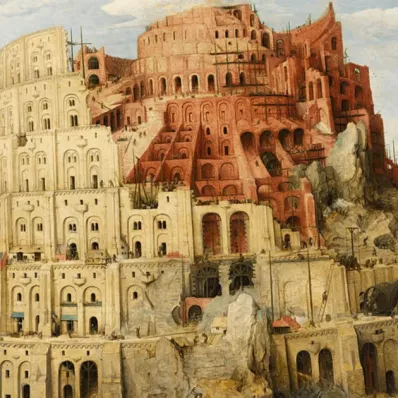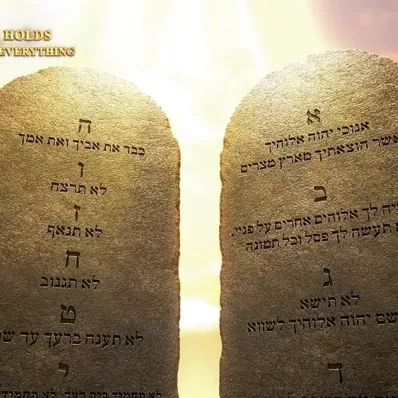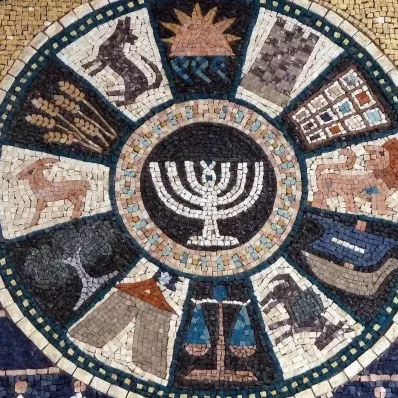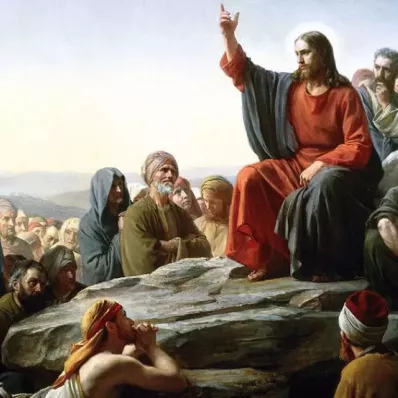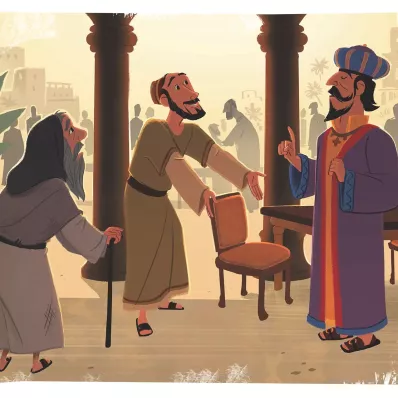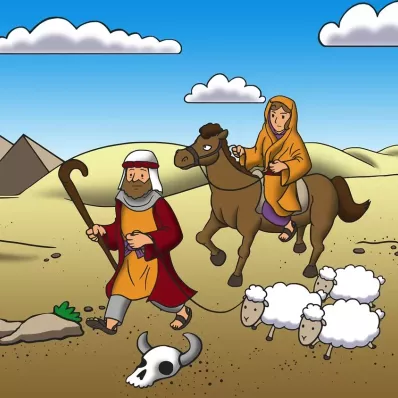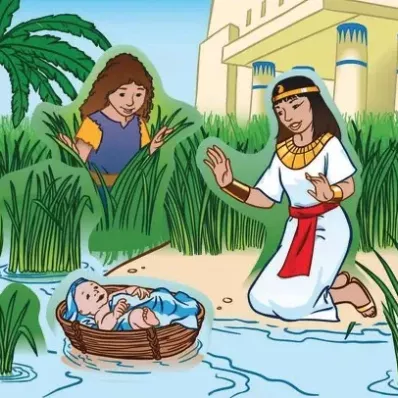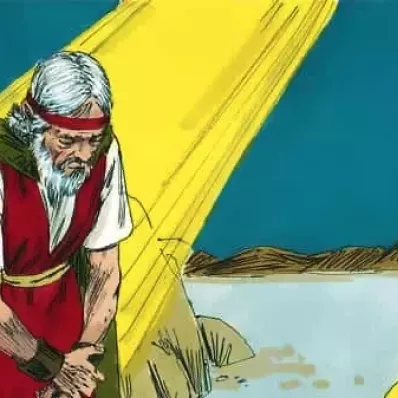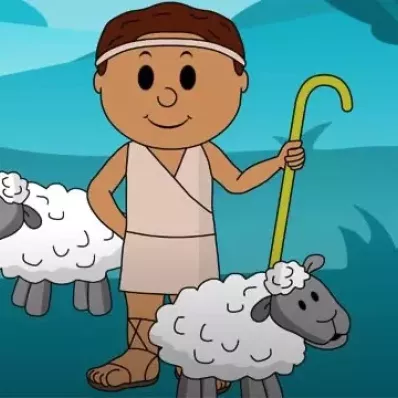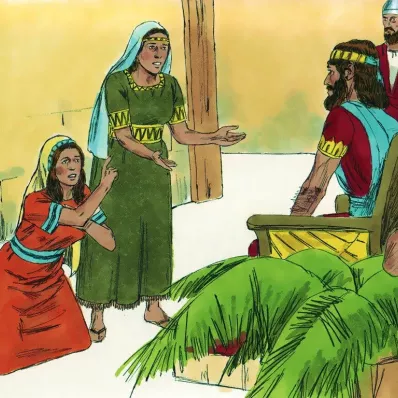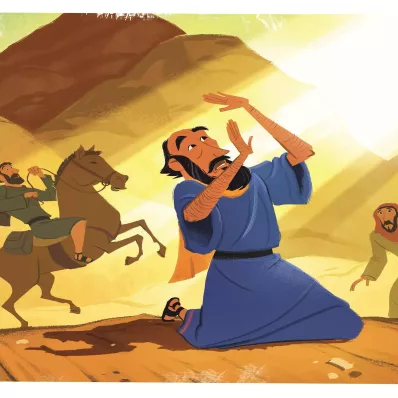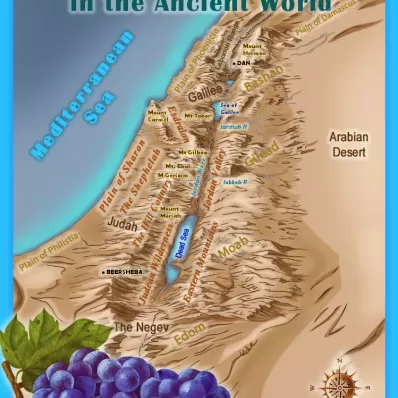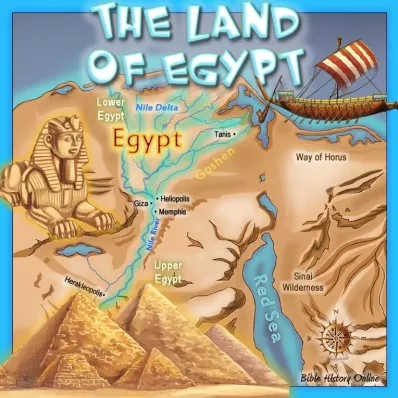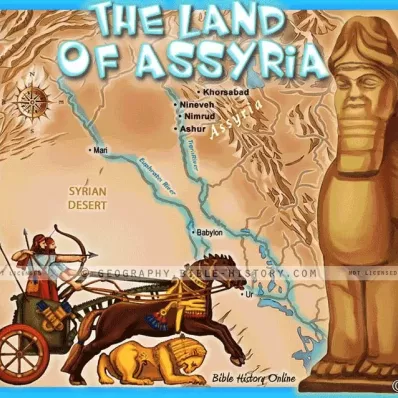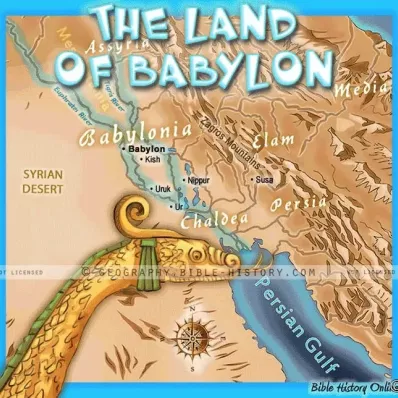Deuteronomy
In all the Hebrew manuscripts the Pentateuch (q.v.) forms one
roll or volume divided into larger and smaller sections called
"parshioth" and "sedarim". It is not easy to say when it was
divided into five books. This was probably first done by the
Greek translators of the book, whom the Vulgate follows. The
fifth of these books was called by the Greeks Deuteronomion,
i.e., the second law, hence our name Deuteronomy, or a second
statement of the laws already promulgated. The Jews designated
the book by the two first Hebrew words that occur, "'Elle
haddabharim", i.e., "These are the words." They divided it into
eleven "parshioth". In the English Bible it contains thirty-four
chapters.
It consists chiefly of three discourses delivered by Moses a
short time before his death. They were spoken to all Israel in
the plains of Moab, in the eleventh month of the last year of
their wanderings.
The first discourse (1-4:40) recapitulates the chief events of
the last forty years in the wilderness, with earnest
exhortations to obedience to the divine ordinances, and warnings
against the danger of forsaking the God of their fathers.
The seond discourse (5-26:19) is in effect the body of the
whole book. The first address is introductory to it. It contains
practically a recapitulation of the law already given by God at
Mount Sinai, together with many admonitions and injunctions as
to the course of conduct they were to follow when they were
settled in Canaan.
The concluding discourse (ch. 27-30) relates almost wholly to
the solemn sanctions of the law, the blessings to the obedient,
and the curse that would fall on the rebellious. He solemnly
adjures them to adhere faithfully to the covenant God had made
with them, and so secure for themselves and their posterity the
promised blessings.
These addresses to the people are followed by what may be
called three appendices, namely (1), a song which God had
commanded Moses to write (32:1-47); (2) the blessings he
pronounced on the separate tribes (ch. 33); and (3) the story of
his death (32:48-52) and burial (ch. 34), written by some other
hand, probably that of Joshua.
These farewell addresses of Moses to the tribes of Israel he
had so long led in the wilderness "glow in each line with the
emotions of a great leader recounting to his contemporaries the
marvellous story of their common experience. The enthusiasm they
kindle, even to-day, though obscured by translation, reveals
their matchless adaptation to the circumstances under which they
were first spoken. Confidence for the future is evoked by
remembrance of the past. The same God who had done mighty works
for the tribes since the Exodus would cover their head in the
day of battle with the nations of Israel, soon to be invaded.
Their great lawgiver stands before us, vigorous in his hoary
age, stern in his abhorrence of evil, earnest in his zeal for
God, but mellowed in all relations to earth by his nearness to
heaven. The commanding wisdom of his enactments, the dignity of
his position as the founder of the nation and the first of
prophets, enforce his utterances. But he touches our deepest
emotions by the human tenderness that breathes in all his words.
Standing on the verge of life, he speaks as a father giving his
parting counsels to those he loves; willing to depart and be
with God he has served so well, but fondly lengthening out his
last farewell to the dear ones of earth. No book can compare
with Deuteronomy in its mingled sublimity and tenderness."
Geikie, Hours, etc.
The whole style and method of this book, its tone and its
peculiarities of conception and expression, show that it must
have come from one hand. That the author was none other than
Moses is established by the following considerations: (1.) The
uniform tradition both of the Jewish and the Christian Church
down to recent times. (2.) The book professes to have been
written by Moses (1:1; 29:1; 31:1, 9-11, etc.), and was
obviously intended to be accepted as his work. (3.) The
incontrovertible testimony of our Lord and his apostles (Matt.
19:7, 8; Mark 10:3, 4; John 5:46, 47; Acts 3:22; 7:37; Rom.
10:19) establishes the same conclusion. (4.) The frequent
references to it in the later books of the canon (Josh. 8:31; 1
Kings 2:9; 2 Kings 14:6; 2 Chr. 23:18; 25:4; 34:14; Ezra 3:2;
7:6; Neh. 8:1; Dan. 9:11, 13) prove its antiquity; and (5) the
archaisms found in it are in harmony with the age in which Moses
lived. (6.) Its style and allusions are also strikingly
consistent with the circumstances and position of Moses and of
the people at that time.
This body of positive evidence cannot be set aside by the
conjectures and reasonings of modern critics, who contended that
the book was somewhat like a forgery, introduced among the Jews
some seven or eight centuries after the Exodus.

